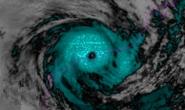Government/Policy

September 29, 2017
Jones Act Waived—What is It?
Written by Sandy Williams
President Trump lifted the shipping restrictions on Puerto Rico on Thursday, at least temporarily waiving the Jones Act that prohibits non-U.S. flagged vessels from delivering shipments between two U.S. ports.
With the decision, relief supplies can be brought from the mainland to devastated Puerto Rico by foreign-owned vessels. The waiver is limited to 10 days.
The Merchant Marine Act of 1920, also known as the Jones Act, regulates maritime commerce in U.S. waters and between U.S. ports. The law designates all shipping between U.S. ports must be on U.S. vessels even if foreign-flagged vessels are available and more economical.
The origin of the law began in World War I when foreign merchant fleets left American shores to aid the war effort, leaving the U.S. with a shortage of vessels to conduct normal trade and to transport defense cargo once the United States joined the war. Later it was seen as a defense to border security. In studies as recent as 2011 and 2016, concerns surfaced regarding terrorist attacks by “exploitation of maritime industry practices” (quote from Department of Homeland Security).
U.S. territories, as well as Hawaii and Alaska, argue that the restrictions make shipping and prices more expensive than mainland U.S.A.
Rep. Luis V. Gutiérrez (D-IL) emphasized those extra costs when he and other members of congress implored the administration to waive the act for Puerto Rico relief efforts.
“Puerto Rico is broke and the federal government already controls the purse strings through the financial control board or Junta that was imposed by Congress,” said Gutiérrez. “Puerto Rico can’t borrow funds and they are required to use American shipping only, which is the most expensive in the world. In their hour of need, Washington can help by suspending the Jones Act and suspending cost-sharing obligations.”
Sen. John McCain (R-AZ) offered his support a day later: “It is unacceptable to force the people of Puerto Rico to pay at least twice as much for food, clean drinking water, supplies and infrastructure due to Jones Act requirements as they work to recover from this disaster.”
During natural disasters, the Jones Act can hold up supplies in regions like Puerto Rico, Guam and Hawaii as they wait for U.S. vessels to become available for shipments. Trump faced pressure from both those who opposed and supported the act following the recent hurricanes..
U.S. Rep. Garrett Graves (R-LA) criticized Trump for waiving the Jones Act.
“This is a solution in search of a problem. There are several thousand shipping containers sitting at the docks in [Puerto Rico] today,” Graves said on Thursday (Sept. 28). “The problem isn’t the Jones Act. The problem is that there was a hurricane. Logistical systems are destroyed. Trucks, highways and other transportation systems are gone. They can’t get food and supplies to hurricane victims. Already, two-thirds of the vessels bringing commerce to Puerto Rico are foreign-flagged.”
Homeland Security Advisor Tom Bossert reacted Thursday to criticism that the Jones Act was not waived quickly enough for Puerto Rico, saying it was an “unfounded complaint.” There were plenty of U.S. flag vessels to meet the needs of transporting fuel and commodities into Puerto Rico, he said. The waiver was issued after Governor Rosselló called Bossert with the request.
“So that was not too late. It was not even too early. It was just the right thing to do proactively,” said Bossert. When pressed by reporters, he said had he not received a request from the governor, he would not have waived the Jones Act.







